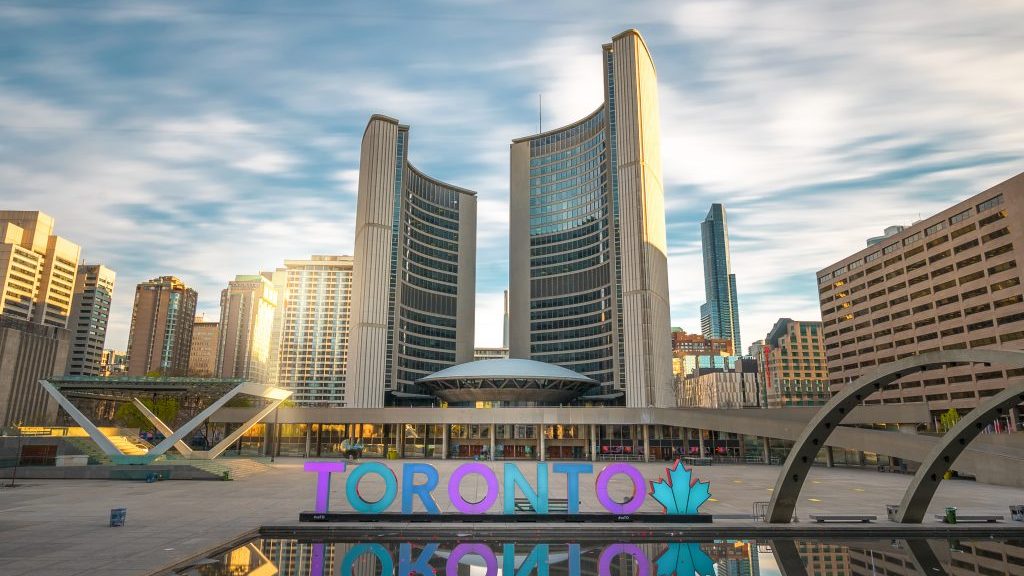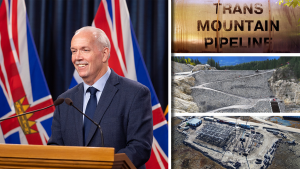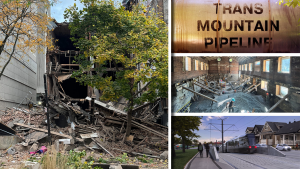The Residential Construction Council of Ontario (RESCON) is objecting to a recent decision by Toronto City Council to accelerate the timeline of its net-zero strategy 10 years ahead of schedule.
On Dec. 15 council adopted the TransformTO Net Zero Strategy, which sets a course for the city to achieve net-zero greenhouse gas emissions by 2040.
The decision lacked industry consultation, could have a negative impact on developers and builders and hinder efforts to build housing, said Paul De Berardis, director of building science and innovation with RESCON, which submitted a letter to council.
The original timeline of 2050 already posed significant challenges for developers and the plan counts on renewable electrical energy resources being readily available by 2050, but that timeline does not align with the target of the new plan.
Furthermore, moving up the city’s climate strategy implementation ahead of the policies being established by the provincial and federal governments could result in unintended consequences and confusion, states the submission.
The cost side of all these aspirational climate goals was not discussed, De Berardis pointed out.
“Ultimately the challenge here is that the city isn’t responsible for any of these costs, they are all borne by industry and then industry has to find a way to pass these costs onto the homebuyers,” he explained. “Our big concern is that we’re going to push towards electrification, we’re then going to have to incur the cost for the infrastructure. There is going to be a huge surge in the electricity rates. So not only are homebuyers going to be faced with the upfront premium costs now for all these measures, their operating costs are unfortunately going to go up. None of that was considered.”
RESCON is particularly interested in the Toronto Green Standard (TGS), part of TransformTO’s plan, which has requirements that apply specifically to construction. Many of the requirements are onerous and take years to plan and implement.
“A lot of these requirements are focused on electrification, so moving space and water heating of buildings to electric as opposed to any reliance on natural gas,” he said.
Another concern is that the city has an incentive program for moving to higher tiers of energy efficiency in the TGS but they are miniscule in terms of actually offsetting the cost premiums.
“Not a lot of builders have voluntarily progressed to the higher tiers of the TGS because of the financial challenges associated with it,” De Berardis said. “We feel the city has underestimated the true costs of the premiums they are imposing upon the building industry and finally the homebuyers on what the TGS requirements are actually costing.”
The issue with this push to electrification, De Berardis said, is that the Ontario electricity grid is not carbon free.
“We actually feel that there could be an increase in greenhouse gas emissions due to the acceleration because there is going to be a higher reliance on a lot of fossil fuel burning power plants,” he said.
Toronto Hydro is saying they are expecting about a $10 million-dollar-plus upgrade to their distribution infrastructure in order to cater to the anticipated doubling or tripling of electricity the City of Toronto is going to need. The province’s electrical grid needs to be decarbonized and there are currently no commitments to ensure that the electrical grid in Ontario will become zero emissions by 2030. If this were to be accomplished, IESO identifies that a minimum investment of $27 billion is required along with increasing residential electricity bills by 60 per cent.
“There is a huge amount of infrastructure that Toronto Hydro is going to require and there is an assumption…that 50 per cent is going to come from local clean energy generation through industry, so things like solar panels and battery storage, biogas,” said De Berardis. “The reality is there is no one operating solar or battery on a mass scale right now in the city or even in North America.”
In addition, more emphasis should be put on embodied carbon, especially since many of these technologies are produced in other countries, he added.
Overall, RESCON said more consultation was needed from the industry and other tiers of government that are responsible for power generation.
“We’re a little disappointed that some of our very valid points were not heard,” De Berardis said. “Ultimately it was a very political decision that was made at council in the sense that everyone wants to do what they can for the environment which we understand and fully support.”
One of councillors introduced a motion for staff to “consult with members of the construction and development industry to identify challenges and solutions to ensure we reach our goal of 100 per cent of new buildings built to near zero emissions by 2030.”
Follow the author on Twitter @DCN_Angela.











Recent Comments
comments for this post are closed